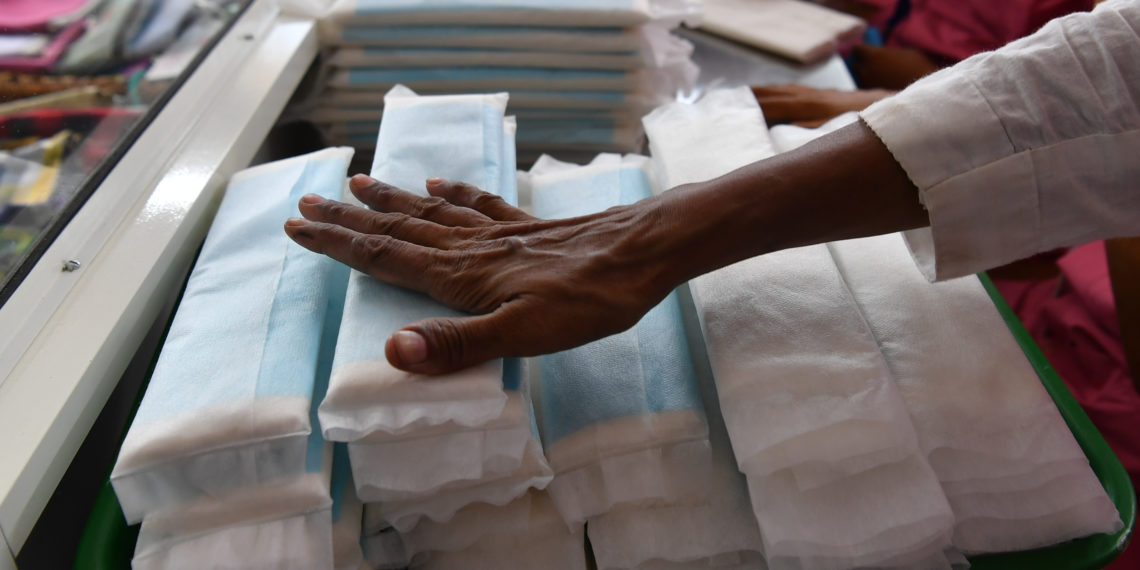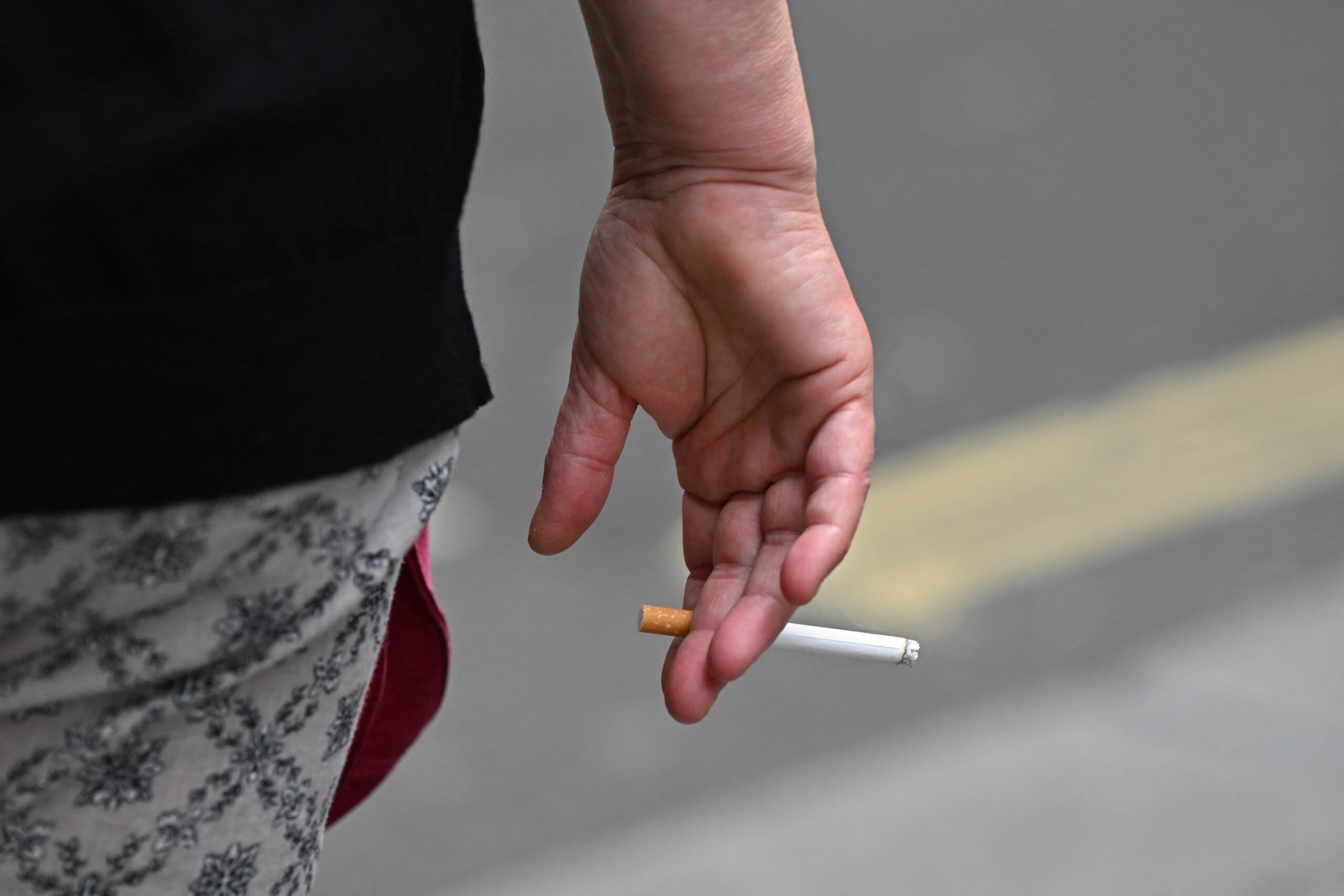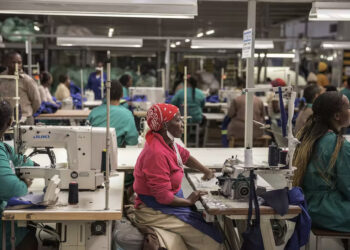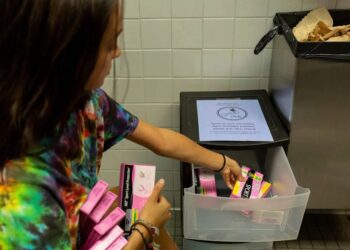Recently, when I used a men’s restrooms at the George Washington University’s Milken School of Public Health in Washington, DC, I was pleasantly surprised to see free packs of tampons and sanitary pads. This was a first for me.
When I looked it up online, I learned they are intended for transmen or others who may biologically need tampons but prefer using men’s bathrooms. I also read there was a student-led campaign to make these sanitary products freely available in four sets of restrooms on campus since at the store, a box of tampons is $9 or sanitary pads $15.
Sadly, the offering of free sanitary products is unusual worldwide. It shouldn’t be.
Taxes on Sanitary Products
A week later, I was excited to learn that the government of Rwanda removed Value Added Tax (VAT) on sanitary pads to make it more affordable to girls. They join governments in countries like Kenya, India, Canada, the United Kingdom, Ireland, and Australia that have either removed or reduced taxes on sanitary products.
The government of Rwanda must be commended for this move. However, even still, the cheapest pack of sanitary pads costs $0.325. Since some women require several boxes per month, this pricing could still be too expensive.
Free sanitary products should be available in the restrooms of schools, workplaces, and markets, especially in underserved communities where they can be cost-prohibitive. If condoms can be given freely in most countries, surely reproductive justice dictates that sanitary pads deserve the same consideration, even more so since menstruation is unavoidable for girls and women.
Menstruation begins at puberty and lasts until the woman reaches menopause, usually in her 40s. The average woman uses between 11,000 and 15,000 sanitary products for 3,500 menstrual days (equivalent to 10 years of her life). This means that even with the VAT removal in Rwanda, a woman would spend up to $4,875 on sanitary pads during her lifetime, though it’s still less than the nearly $10,000 without VAT removal.
Ten thousand dollars, or even $5000, is a huge amount for most women and girls worldwide. Making sanitary products free and accessible, especially in poor communities, is the fair thing to do and would create positive outcomes.
Missing School Because of Period
Making sanitary products free is an indirect way of ensuring all girls are enrolled in school. According to UNESCO, 10 percent of girls in Sub-Saharan Africa miss school because of periods.
Other menstruation-related factors that stop girls from attending school include a lack of clean toilets. This implies that even if a girl has access to sanitary pads, she would not have a clean and decent place to change her pads when she is in her period.
Girls in Kelantan skipping school during their periods because they can't afford sanitary pads.https://t.co/uujNTMFuyq
— Aidila Razak (@aidilarazak) November 24, 2019
For girls who cannot afford to buy sanitary pads, it becomes a double jeopardy of sorts, leading to more girls missing out of school. Indeed, globally, 130 million girls are out of secondary school, the time when they often begin menstruation.
Reduction of Infections
Additionally, free sanitary products could reduce infections in girls and women in poor communities.
A colleague who works in the sexual and reproductive health sector shared his experience of visiting a boarding secondary school in northeast Nigeria, where he observed that mattresses in the school hostels had several holes in them. When he inquired why this was the case, he was told that some girls in the school tear out portions of mattresses and use them as “sanitary pads.” This is the extent that girls from poor communities go to have a semblance of the sanitary pad to use.
Elsewhere, women use cow dung and dig a hole and sit on it to collect menstrual blood. One can imagine the risk of infections they face and experience as a result of these unclean methods.
Infections of the female genital tract can progress to a pelvic inflammatory disease, which in turn could damage the uterus, fallopian tubes, and ovaries, leading to infertility.
Unfair Health Inequalities
Lastly, it is all about reducing unfair health inequities and ensuring reproductive justice. Equity ensures people receive interventions that meet their present circumstances. Therefore, the most equitable thing to do when it comes to access to sanitary products for the poor and underserved is to ensure girls and women in such communities get them for free.
One way to achieve this is by providing reusable sanitary pads. There are already initiatives producing reusable pads: Safi Pads in Kenya, Pad-up Creations in Nigeria, Gramalaya in India, and Dignity Dreams in South Africa.
An Ethiopian chemical engineer who's been making reusable sanitary pads which have helped girls in rural areas go to school has had her work recognised by a US news station https://t.co/MEsn45rCeG pic.twitter.com/Ps07A5YqfQ
— BBC News Africa (@BBCAfrica) December 12, 2019
Menstrual cups are another cost-effective option. A review by the medical journal The Lancet found that menstrual cups are a safe option for menstruation management and are being used internationally.
These free sanitary products should be distributed in schools but also in poor communities to ensure no girl is left behind.
Ending Period Poverty
Providing free sanitary products may seem daunting, but efforts can begin slowly to reverse this inequity faced by girls, in one community at a time. This should be led by governments working closely with donors, civil society, the private sector, and communities to make it a reality.
In 2018, the government of Scotland became the first country in the world to provide free sanitary products to all of its 395,000 pupils and students, by investing £5.2 million ($6.93 million). As a father of two daughters, I would not want them to lack access to sanitary products, and I want all girls like them around the world to feel clean, safe, and healthy.
The world must end period poverty and the unaffordability of sanitary products. It is the most equitable thing to do. Period.
Disclaimer: The views and opinions expressed here are those of the author and do not necessarily reflect the editorial position of The Globe Post.






















